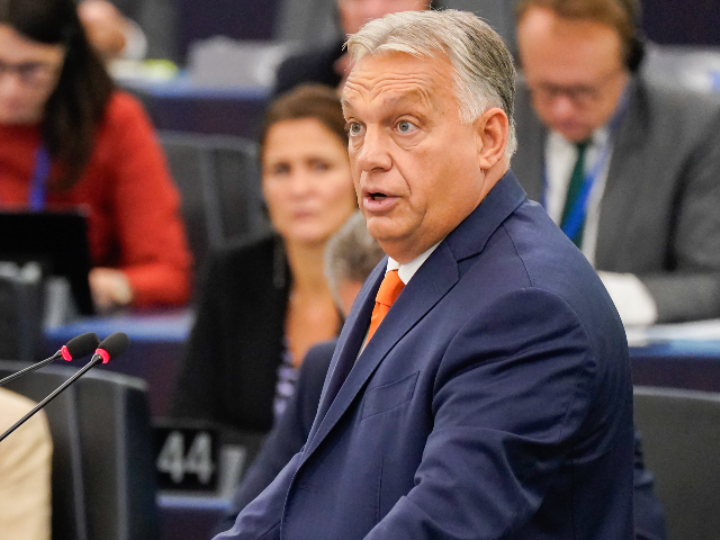by Shaheena Janjuha-Jivraj*
One of the most significant challenges in dealing with the field of diversity and inclusion is to change mindsets harnessing new ways of thinking and behaving. Leadership creates opportunities for individuals to initiate and sustain change. Despite this springboard, individuals can find themselves caught between where they want to take their team or organization and the reality of where they are with limited time, resources, or experience to create the change.
The key to success lies in an individual recognizing that they have the agency to make changes, and more often than not, the source of this behavior emerges from education experiences. The most exciting element is that this thinking is being developed explicitly under the auspices of the Sustainable Development Goals created under the United Nations 2030 Agenda. Target 4.7 focuses on education opportunities. The scope of this target is to help the education ecosystem develop opportunities for learners to acquire the knowledge and skills needed to promote sustainable development, gender equality, human rights.
The term "learners" is not limited to school children, but anyone who engages with learning and developing new skills. In essence, the focus is on developing the curriculum and learning opportunities by creating global citizens. The nucleus of this discussion is Bridge 47, an organization that has built a community of over 500 policymakers, academics, educators, business people, and civil society representatives from around the world. Two hundred of those individuals gathered in Helsinki for the conference Envision 4.7. The event created a roadmap for securing the political will to advance Target 4.7.
The Finnish commitment to transformational education opportunities across Europe hit the spotlight in 2006 when Finland, holding the European Union Presidency, emphasized the importance of education by creating a cohesive approach to Education practice across the EU. Once again, in 2019, as Finland holds the EU presidency, the thinking has matured from aspiration and awareness to strategic directions based on key recommendations. As always, where the emphasis is on systemic change, large-scale ownership of the ideas and means to provide solutions is the only way forward.
Li Andersson, Minister of Education for Finland, emphasized the importance of collaboration among key stakeholders to achieve success. Anderson shared her views during the conference; "Knowledge skills, research, civil society, and culture play a decisive role in the transition towards sustainability, and therefore we are working broadly to implement the Agenda 2030 under the branch of the Ministry of Education and Culture."
Finland is ranked number one globally for education. Speaking to Forbes Andersson explained the inclusive approach is paramount to success; "We have a holistic approach to education, our core curriculum incorporates transversal competences, all the learning takes place embedded in the national curriculum." Transversal competencies provide the catalyst for thinking beyond knowledge acquisition to more a stronger applied context, the seedbed for creating leaders.
Bringing together a wide range of stakeholders to collaborate and build a practical approach to transformational education, and despite the goodwill, the plan needed a radically different method. Rilli Lappalainen?, Chair and Founder of Bridge 47 and Director of Advocacy at Finnish Development NGO ?Fingo?, identified the need to think differently; "A ’business-as-usual’ mindset is insufficient to tackle many of the contemporary challenges that cross-international borders." In bringing together a broad range of stakeholders to agree on the recommendations, Bridge 47 tapped into its network of partners from Europe and behind to curate a vertical group of influence, ranging from funding bodies within the European Union to UN bodies to Non-Government Organisations (NGOs) and educators.
A great deal of the discussion still focuses on the need to change how leaders engage with education, from talent recruitment to their professional development, and in particular focusing on the intersection between building knowledge and creating confidence for individuals to take new thinking forward. With more companies questioning the value of long-held assumptions towards recruitment and promotion procedures, for example, challenging the narrow lens of degree qualifications as the defining point for recruitment there is an urgent need for educational institutions in their broadest sense to demonstrate agility developing and delivering the curriculum. Organizations are starting to have more open conversations around opening routes for recruitment. Earlier in 2019, the social mobility platform, Linked In shared its analysis on members in the USA to determine the types of jobs and roles that do not require a standard four-year college degree. Inevitably many of the professional and ultimately companies are in the tech sector; for example, Apple and Google and companies are trialing recruitment beyond traditional degrees to include ’equivalent practical experience’ – identified by Alphabet, Google’s Parent company.
While these changes may seem clunky and slow-moving by removing the automatic requirement for a degree, the question around what constitutes the appropriate requirements focuses on a more nuanced discussion around skills, experience, and, more critical, combining these factors for problem-solving in new areas and situations. In 2015 when The World Economic Forum identified the top ten skills required by anyone to thrive in the Fourth Industrial Revolution, the shift towards transversal skills was notable. The predictions stated greater reliance on knowing ideation, creativity, and knowing how to work well with others; co-operation and even collaboration.

These skills demonstrate individuals executing higher-level thinking. Knowledge acquisition is not as important as knowing how to decide the value of information being shared and becoming skilled in questioning its usefulness when applied to different situations and problems. Individuals become more confident in critical thinking and cognitive agility; it also requires individuals to believe they can stretch and apply their thinking. Thanks to the vital field of neuroscience and brain plasticity, we know brains can re-wire among anyone, irrespective of their age, gender, or race. However, for individuals to realize the value of these skills, workplaces also need a shake-up in encouraging and recognizing more cognitive agility.
The key driver in this agenda lies within education and the need for educators to push this field further and breaking free from the shackles of what has shaped it. The change needs to happen globally to reach a tipping point, where we are not talking about transformational education as the new boundary. This shift will take time; it requires dismantling structures, retraining thinking, and attitudes among all stakeholders -educators, learners, parents, and the broader environment of government and business.
Although it can be overwhelming at times, this conversation is too important to ignore. Through platforms such as Bridge 47, the collaborative effort enables a diverse range of partners to create a blueprint for policy and practice. The potential for even broader collaboration to include the private sector makes this discussion even more exciting and relevant to everyone.
*Academic, Consultant, Author: diversity, leadership & innovation across organizations
**first published in: www.forbes.com




 By: N. Peter Kramer
By: N. Peter Kramer
